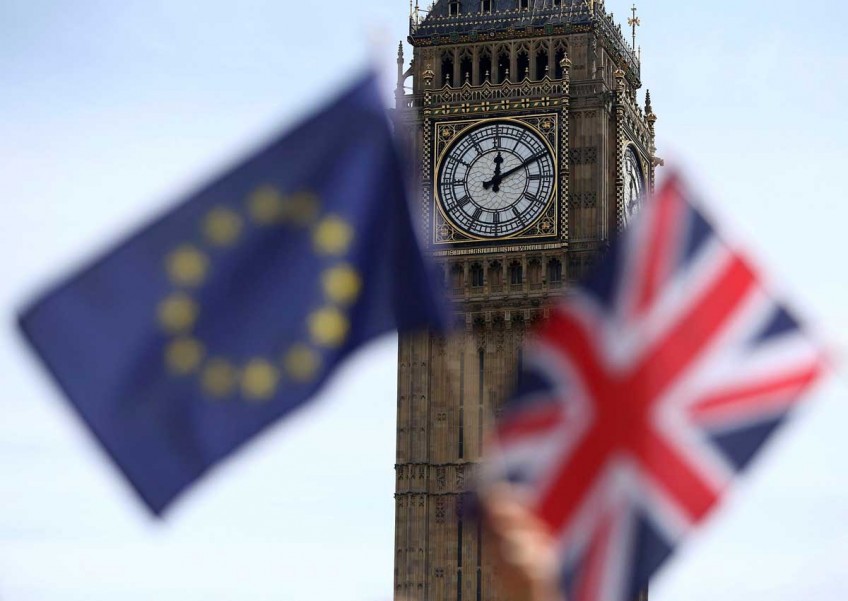British PM faces immigration backlash in tough talk on Brexit

Birmingham - Prime Minister Theresa May threw down the Brexit gauntlet to Brussels on Wednesday in a speech calling for "maximum freedom" in Europe's single market despite a backlash against her hard line on immigration.
May's address to the Conservative party conference came as the pound plunged on currency markets and amid growing criticism of proposals to make businesses publish lists of how many foreign workers they employ.
But she insisted her policies would help working-class families whose alienation was reflected in June's shock referendum vote to leave the EU, repeating the 1960s US civil rights slogan: "A change is going to come."
Closing the convention in Birmingham, central England, May said Britain wanted both access to the single market and control over immigration in formal talks with Brussels which she will trigger by the end of March.
This is despite European leaders' insistence that access to the single market depends on allowing the free movement of workers.
"I want to give British companies the maximum freedom to trade with and operate within the single market and let European businesses do the same thing here," she said.
"We are not leaving the European Union only to give up control of immigration all over again and we're not leaving only to return to the jurisdiction of the European Court of Justice".
Immigration was the key issue in the June 23 vote for Britain to leave the bloc, a result that sent shockwaves through Europe and the global economy and sparked political turmoil at home.
Her government this week proposed measures including urging employers to publish a record of how many non-British citizens they hire and restricting the number of foreign students by tightening visa rules.
These have provoked a furious reaction from the opposition, which accuses May of a lurch to the right.
London Mayor Sadiq Khan wrote on Twitter that the list plan sent a "deeply worrying message to the millions of people from around the world living and contributing in our country".
Home affairs spokesman for the main opposition Labour Party Andy Burnham added that the tone of the Tory conference had become "increasingly xenophobic".
"The idea of British companies producing lists of foreign workers runs counter to everything that this country has ever stood for. It would be divisive, discriminatory and risks creating real hostility in workplaces and communities," he said.
On Wednesday, the pound slumped to a new 31-year low against the dollar on concerns about how Brexit will take effect.
Acting director of the British Chambers of Commerce Adam Marshall said the measures would be "bad news for the economy, job creation and business investment".
May's address at her first conference as leader sought to cast the Conservatives as a centre ground party for working class families marginalised by globalisation and the aftermath of the 2008 financial crisis.
She described the Brexit vote as a "call for a change in the way our country works", warning that if ministers did not respond, "resentments will grow".
She used the example of how British triathlete Alistair Brownlee had helped his exhausted brother Jonny over the finishing line at last month's ITU Triathlon World Series to show "there is more to life than individualism".
May stood up to speak with the anti-EU UK Independence Party in turmoil after the resignation of its leader Diane James on Tuesday just 18 days after being elected to replace Nigel Farage.
Farage, who quit after the Brexit vote saying his ambition had been achieved, technically remains party leader as James did not formally register her new job with electoral authorities.
But he has insisted he will not return to the post.
Analysts claimed the Conservatives were echoing UKIP in some announcements made at the four-day conference, although these have also been welcomed by many Tory activists.
"I think Theresa May is doing a very shrewd job of parking her tanks on UKIP's lawns," UKIP expert Matthew Goodwin of Kent University said on BBC radio.